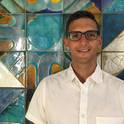Presentation
The Language of Ciencia: Translanguaging and Learning in a Bilingual Science Classroom
Annual Meeting of the American Educational Research Association (AERA)
(2015)
Abstract
Dual Immersion bilingual education (DI) typically calls for balanced enrollment of “native speakers” of English and the target language (mainly Spanish) as well as rigid divisions in the allotment of instructional time dedicated to each language, DI promises higher achievement for emergent bilinguals (Lindholm-Leary and Hernández, 2011). These imposed dichotomies between languages of instruction and English and Spanish “native speakers” ignore the dynamic and blurred language boundaries characteristic of language use in bilingual speech communities (Otsuji and Pennycook, 2010), and indeed, of languages themselves, thus constraining and undervaluing the linguistic repertoires of emergent bilinguals. This work relies on the theoretical framework of translanguaging (García and Wei, 2013) to show how bilingual students’ actual language practices eschew the separations and time allotments mandated in traditional DI programs, but do so productively in the acquisition and development of content knowledge and academic skills. Translanguaging refers to two dimensions of bilingual language use. First, it recognizes that for individuals immersed in bilingual speech communities, legitimate language use includes what has traditionally been referred to as codeswitching, as well as the reliance on multiple codes and modalities simultaneously for input and production. Second, it extends post-structuralist theories of language and second language acquisition that reject notions of languages as bound sets of finite components and rather view them as dynamic, usage-based systems emerging from patterns of interaction and negotiation (Makoni and Pennycook, 2007), challenging previous notions of language purity and the paradigmatic “native speaker” proficiency (Cook, 1999). Data for this piece comes from a year-long ethnography investigating language practices and ideologies among students, parents, and teachers in a 5th grade DI cohort. Through observation, field notes, and audio recording of classroom interactions as well as semi-structured interviews, the work finds that despite prevalent ideologies discouraging translanguaging practices, students engaged these strategies to make sense of new content, seek information from various media for research projects, and to direct collaboration. Analysis of transcripts from specific representative examples of students’ interactions and work in their science class demonstrates how emergent bilingual students draw from their full linguistic repertoire to ask questions, offer explanations, guide collaboration, and seek and provide information. These findings add to a nascent literature on classroom translanguaging and offer concrete support for a repertoire-based approach to instruction for emergent bilinguals, in turn challenging fundamental principles of DI curriculum.
References
Cook, V. J. (1999). Going Beyond the Native Speaker in Language Teaching. TESOL Quarterly, 33(2), 185–209.
Garcia, O., & Wei, L. (2013). Translanguaging: Language, Bilingualism and Education. New York, NY: Palgrave Macmillan.
Lindholm-Leary, K., & Hernández, A. (2011). Achievement and language proficiency of Latino students in dual language programmes: Native English speakers, fluent English/previous ELLs, and current ELLs. Journal of Multilingual and Multicultural Development, 32(6), 531-545.
Makoni, S., & Pennycook, A. (Eds.). (2007). Disinventing and reconstituting languages (Vol. 62). Clevedon, UK: Multilingual Matters.
Otsuji, E., & Pennycook, A. (2010). Metrolingualism: Fixity, fluidity and language in flux. International Journal of Multilingualism, 7(3), 240-254.
Disciplines
Publication Date
April 17, 2015
Location
Chicago, IL
Comments
Paper presented as part of the session: Talk That Talk: Making the Most of Text, Speech, and Silence for Emergent Bilinguals in the Classroom.
Citation Information
Luis E. Poza. "The Language of Ciencia: Translanguaging and Learning in a Bilingual Science Classroom" Annual Meeting of the American Educational Research Association (AERA) (2015) Available at: http://works.bepress.com/luis_poza/30/
